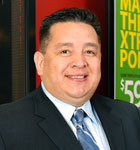In the throes of a declining economy that was cutting a bleak swath through the construction industry, Hector Vallejo knew he had his work cut out three years ago when Stanley Black & Decker, Inc. tapped him to develop a multicultural marketing strategy targeted at the Hispanic construction segment. The move was prompted when budgetary constraints forced the company to abandon its highly successful tactical approach to a more comprehensive strategic operation. While the rebooted game plan essentially meant executing a major strategic turn on the dime, the mission certainly was in the wheelhouse of Vallejo, a 13-year employee of the leading tool manufacturer with an edict to maintain and further enhance the company’s market standing. Learn how Vallejo is helping the tools-and-hardware company market in a “culturally relevant way” to the Latino construction segment.
1. Going Where They Buy
One way the company targets Hispanic contractors is by going where they buy, such as distributors like Home Depot and Lowe’s. To facilitate that effort, Vallejo established marketing teams that visit distributors where they carry out several retail strategies specially targeted to those contractors, he says.
Marketing team members also drive tool-laden trucks as they market the DEWALT brand—a brand targeting professional residential and commercial contractors who make a living using power tools—and products directly to Hispanic contractors at their worksites, added Vallejo. “They don’t sell, they just market the product and show contractors the benefits of how these can increase productivity on the jobsites through innovative features and better performance,” he explains. Team members provide contractors, among other things, training on the jobsite, including proper use of power tools, and show them new and innovative tools that help them do their job “better and faster.”

Helping maximize the potential for success among team members, DEWALT focused on studding its force with those who have a construction background, advanced knowledge of Hispanic contractors, and reside in the communities in which they work, he explains. For example, SB&D has a team of five in southern California, all of whom are from the area, Latino or of Latino background, and who’ve previously worked in the construction industry. The combination instantly and significantly spikes their credibility among Hispanic contractors the moment they arrive on a job site. “No one in our industry has anything like that,” Vallejo says.
2. Partnering with Trade Organizations
Also reaching Hispanic contractors where they learn, DEWALT established a number of partnerships with trade organizations that provide training to contractors, ranging from safety to how to read blueprints and bid on contracts. Furthermore, DEWALT teamed with an organization called the National Hispanic Contractor Association, which helps develop and train Hispanic contractors. Vallejo also sits on the board of Corporate Advisors. “It’s important that Hispanic contractors succeed and be safe on the job so they can provide for their families and contribute to the US economy,” Vallejo says. He added that he’s “a big supporter” of organizations that provide tools for them to better themselves. “That’s what we want for everyone in our society.”
Additionally, Stanley Black & Decker professional-tool brands are highly visible at sports events like NASCAR, baseball and rodeos, as well as soccer and boxing, the company’s primary sports platform marketing to the Hispanic segment, Vallejo says. For example, DEWALT forged a relationship with Golden Boy Promotions, the largest US-based boxing promoter in the world. “Boxing requires hard work, speed and endurance—attributes that not only fit well with our tools, but describe the character of the professional contractor who uses them,” Vallejo says. “So, it’s a perfect match.”

3. Avoiding Cookie-Cutter Strategies
Overall, Stanley Black & Decker believes it’s incumbent to continue to grow the multicultural market as the country trends in that direction, he says. “A cookie-cutter strategy doesn’t work anymore; you have to start developing more targeted strategies to reach certain groups of consumers that respond in different ways,” he explains.
Vallejo’s convinced the Latino construction worker is the future of the industry. “They’re growing exponentially, learning other trades outside of traditional home-building, entering commercial markets, and starting their own businesses,” he notes. “If they are successful in the industry, we’re successful.” Consequently, Stanley Black & Decker believes it’s essential to continue to provide resources that help them succeed and remain safe on jobsites, adds Vallejo.

